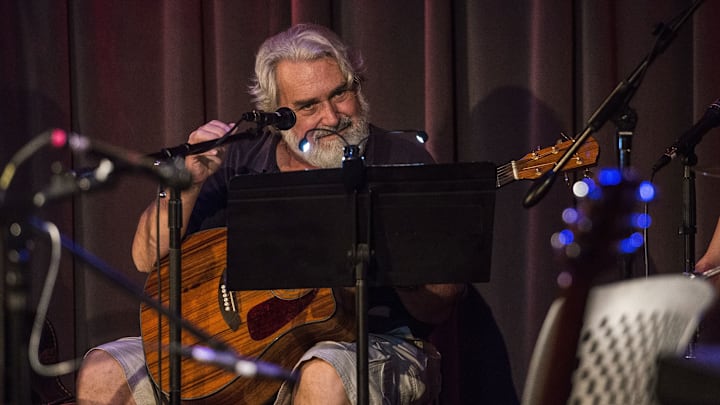To this day, the seventies are considered as the singer-songwriter's prime season. Picking up from all the key roots genres, from folk, blues, and country, and incorporating elements from rock to jazz, singer-songwriters grew into a genre that expressed all the musical and lyrical inclinations of an individual artist. The number of singer-songwriters grew exponentially and the choice was abundant.
Among them, some key artists like Dylan, Neil Young, and Joni Mitchell, to name just three, grew from their early days into fully-blown mature artists that at the same time caught the attention of the wider audience. Yet, with all the choices, at that time to reach a wider audience, an artist depended on the record companies’ PR departments' ability (or will) to promote them, the word of music critics, or the word of mouth of those that caught your record at some point.
Another factor in play was other artists, renowned or not, covering your songs and spreading your name around, which helped some artists, like Townes van Zandt, gain the recognition they deserved.
1970s singer-songwriters that deserve more attention
On the other hand, there were quite a few that weren’t so lucky, even with the support of the critics other artists they influenced, or a staunch cult following they accrued along the way. The wider audience eluded them, with quite a few of others, never (undeservedly) making it beyond one or few now obscure recordings.
Among those that really created some exquisite music and made an impression, particularly among other artists, quite a few names could be mentioned, with these four being among those that stand out to this day.
Judee Sill
During the seventies, ‘the hippest of the hip’ labels that put its main focus on singer-songwriters was Asylum Records. From Joni Mitchell to Tom Waits, and Jackson Browne, the list of quality (and some of the best) singer-songwriters on the label was quite astounding.
One of the artists the label co-founder David Geffen had his pick on was Judee Sill. The two original albums Sill recorded for the label were filled with brilliant, often sublime songs, presenting Sill as an exquisite songwriter who had all the qualities to make it.
Yet beyond being a critics fave and acquiring a staunch cult following, her album sales went nowhere at the time, and Asylum dropped Sill. That didn’t bode well on Sill, whose drug addiction grew, leading to her death from an overdose in 1979.
Still, with the re-evaluation of her work in recent times, it turned out that Sill had a big influence on artists old and new, from Graham Nash and XTC’s Andy Partridge to the more current names like Neko Case and Laura Veirs.
David Ackles
Ackles is often dubbed as artists’ artist. His songs were recorded by many (‘Road to Cairo’ first comes to mind), but his four albums, often hailed as masterpieces, seem to have been bought by more artists than the audience itself, and had prominent places in the collections of the likes of quite a few of them from Robbie Robertson to Elvis Costello. At the same time, ‘American Gothic,’ his best album often finds its place on the list of best albums of all time.
Still, that didn’t help Ackles much beyond becoming yet another cult figure. Maybe it had something to do with Ackles’ love of ‘older’ musical forms like vaudeville and his detailed, often complex lyrics and arrangements that a listener had to dive into.
As one of the favorites of then-CBS boss Clive Davis, Ackles was promptly dropped from the label at the time Davis was sacked (1973), turning to writing film soundtracks and a musical, and leaving a recorded legacy that is still cherished by a lot of artists and not that many listeners in a wider audience.
Emitt Rhodes
With all his pop-inclined brilliance, which started with his stint in the sixties critic's fave The Merry-Go-Round and four seventies solo albums (and one late shot in 2016’ aptly titled ‘Rainbow Ends’), Rhodes was never able to grow an audience that passed beyond yet another cult figure status.
Yet, it seems that among those cult fans, there was quite a number of artists that admired his intricate song craftsmanship, brilliant melody touches, and delicate voice that later in the eighties became part of the now famed Paisley underground. This just might be confirmed by the fact that for his last recordings (Rhodes passed in 2020), he was able to enlist the help of the likes of Aimee Mann, Susanna Hoffs, Jon Brion, and Nels Cline, among others.
Adding to the quality of Rhodes’ music was the fact that he also played all the instruments, and recorded and produced his albums, just showing how widely unappreciated he turned out to be.
